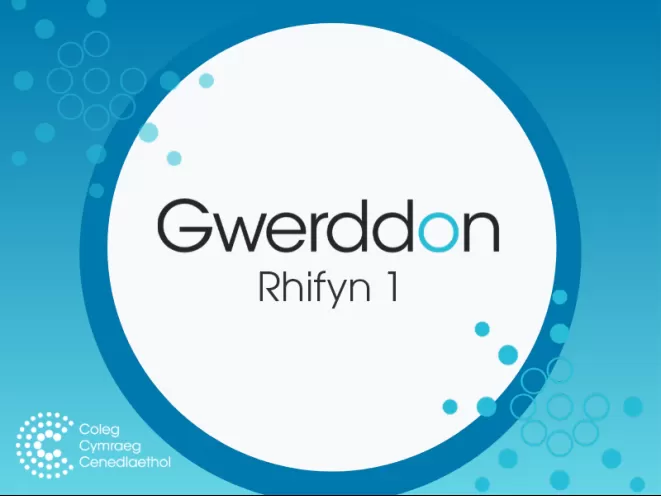This article uses theatre as a lens in order to examine the cultural exchange between Wales and the Khasi and Jaiñtia Hills that is rooted in the history of the Welsh Calvinistic Methodist Overseas Mission present in north-east India between 1841 and 1969. Focusing on Khasi plays from the colonial period as well as an example of Welsh missionary performance staged in Wales in 1929, the article considers the extent to which Welsh conceptions of theatre and drama influenced native performances in the Khasi Hills, and correspondingly, to what extent the missionaries’ perception of India influenced the idea and the representation of the country in Welsh performative portrayals.
From social drama to the pageant: theatre in the cultural exchange between Wales and north-east India
Turning an-‘Other’ Page: Re-interpreting the relationship between south Wales’s Welsh- and English-speaking co...
This article analyses the relationship between Welsh and English speakers in pub scenes in two contemporary novels set in south Wales, namely Y Tiwniwr Piano by Catrin Dafydd (2009) and The Book of Idiots by Christopher Meredith (2012), in light of philosophical theories about the ‘other’ and otherness. The development of the concept of the ‘other’ is traced by considering the work of philosophers and cultural theorists such as Georg Hegel, Simone de Beauvoir, Frantz Fanon and Homi Bhabha. Turning to the work of Charlotte Williams and Simon Brooks, the article argues that both Welsh and English speakers in Wales can experience otherness, and the novels are then analysed to explore how this is reflected in contemporary fictional texts. The article draws conclusions about the significance of otherness to contemporary Welsh imagination and identity and suggests how other philosophical ideas could help us find common ground between Wales’s two main language communities.
Llawlyfr Creadigedd yn yr ysgol gynradd
Datblygwyd y llawlyfr ar-lein yma gan Brifysgol Cymru: Y Drindod Dewi Sant. Mae’n cyflwyno a thrafod prif elfennau creadigrwydd yn yr ysgol gynradd ar gyfer ymarferwyr y Cyfnod Sylfaen a Chyfnod Allweddol 2. Mae’r llawlyfr yn ymateb i ddatblygiadau polisi Llywodraeth Cynlluniad Cymru ac yn cynnig arweiniad ar sut i baratoi, creu, cynllunio, datblygu, trefnu ac asesu gweithgareddau dysgu ‘creadigedd’ o ansawdd uchel.
Llawlyfr Hen Gymraeg – Alexander Falileyev
Dyma'r disgrifiad cynhwysfawr cyntaf un o Hen Gymraeg (iaith y 9fed ganrif hyd ddechrau'r ddeuddegfed) i ymddangos yn yr iaith Gymraeg. Mae'n addasiad (gan yr awdur ei hunan) o Gramadeg Hen Gymraeg, Alexander Falileyev, a gyhoeddwyd yn Rwsieg yn 2002, ac yn Ffrangeg yn 2008. Yn ogystal â throsi'r gwaith i'r Gymraeg, mae Dr Falileyev wedi'i addasu ar gyfer cynulleidfa Gymraeg, ac wedi ymgorffori ffrwyth yr ymchwil diweddaraf ar y testunau hyn (peth ohono eto i'w gyhoeddi). Mae hyn yn golygu y bydd o ddiddordeb i ysgolheigion profiadol yn ogystal â myfyrwyr a lleygwyr. Mae'n cynnwys disgrifiadau manwl o'r testunau hysbys, gyda llyfryddiaeth lawn, penodau ar ffonoleg, gramadeg a chystrawen yr iaith, a detholiad o destunau golygedig gyda nodiadau cynhwysfawr a geirfa. Mae'r llyfr hwn yn rhoi cyfle, am y tro cyntaf, i'r Cymry ddod i adnabod rhai o'r enghreifftiau cynharaf hysbys o destunau yn eu hiaith. Mae Dr Falileyev, yn enedigol o St Petersburg, Rwsia, yn arbenigydd ar yr ieithoedd Celtaidd. Mae wedi cyhoeddi'n helaeth ar enwau lleoedd a phersonol Celtaidd o Ewrop yn yr hen gyfnod, ac ar iaith a llenyddiaeth Cymru'r Oesoedd Canol Golygydd y Gyfres: Dr Simon Rodway, Prifysgol Aberystwyth.
Llawlyfr Technolegau Iaith
Mae’r llawlyfr hwn yn esbonio beth yw technolegau iaith ac yn ddisgrifio rhai o’r cydrannau mwyaf sylweddol yn ogystal â cheisio egluro’r dulliau a ddefnyddir i'w gwireddu. Mae wedi’i fwriadu ar gyfer myfyrwyr, datblygwyr, academyddion, swyddogion polisi, ac eraill sydd heb gefndir yn y maes ond sydd eisiau deall mwy am feysydd pwysig prosesu iaith naturiol, deallusrwydd artiffisial, technoleg cyfieithu a thechnoleg lleferydd. Mae'r llawlyfr hefyd ar gael ar wefan Porth Technolegau Iaith Cenedlaethol Cymru. Ysgrifennwyd gan swyddogion o Uned Technolegau Iaith, Prifysgol Bangor, a Cymen Cyf gyda chymorth grant bach gan y Coleg Cymraeg Cenedlaethol.
‘Beth yw’r ots gennyf i am Gymru?’: The out-migration and aspirations of young people from the Welsh heartland...
This article considers the out-migration of young people from the Welsh-speaking heartlands in terms of their aspirations and hopes for the future. The original doctoral research (2014), is based on Hywel Jones’ (2010) work, which argues that young people born outside of Wales are four times more likely to migrate from Wales than young people born here. The research attempts to establish the main factors that affect rates of out-migration among young people born outside of Wales and those born into non-native families. The article concludes that the main drivers of rates of out-migration among this group are factors such as sense of belonging and the extent of community integration, rather than solely economic factors. In particular, it examines how culture, nationality, and considerations pertaining to the Welsh language have an impact on this trend, which has important implications in terms of the linguistic retention of the ‘traditional’ Welsh speaking areas.
Ancient gentry and the modern nation: Gwaed yr Uchelwyr read in the light of anglophone Welsh fiction of the C...
The core argument of the essay is that it would be worth setting Saunders Lewis’ important early play, Gwaed yr Uchelwyr, in the context of several anglophone Welsh novels published at the turn of the nineteenth century that sought to assess the relevance of the culture of the indigenous gentry of Wales to the new nation celebrated by the Cymru Fydd movement. It is argued that familiarity with these texts could assist us to grasp the subtlety and rich ambivalence of the play’s ideological stance.
The psychological foundations of reading fluency: a review
Forty years of research into reading has elucidated many of the psychological processes underpinning the reading process, but until recently, the cognitive underpinnings of fluency have been relatively unknown. In this review, a description is provided of reading fluency as a cognitive and neurobiological phenomenon, including the research that has gone into understanding this process. My own and my colleagues’ work has focused heavily on this area, and I outline our main findings to date. I end by outlining the implications of this work for our understanding of reading fluency in normally developed and dyslexic adults.
“Daring to live": Work-life balance in the letters of George Sand and Gustave Flaubert, Kate Roberts and Saund...
This article compares the renowned letters of Kate Roberts and Saunders Lewis with the correspondence of two leading nineteenth-century French authors, Gustave Flaubert and George Sand, considering the value and purpose of letters between authors. In addition to widening our understanding of Roberts and Lewis’s works, the article also places the Sand-Flaubert correspondence in a new context, and considers the development of authorial correspondence over the decades. It draws original conclusions by revealing that literary letters continue to play a key role for writers in the twentieth century: offering encouragement and advice, a means of escape from current circumstances, and an important tool in the struggle against the emptiness of modern society.
‘What if this is Armageddon?’: Religion and the Welsh Press in the First World War
This paper analyses the Welsh periodical press during the First World War, with an emphasis on the way an important aspect of the Welsh war culture was constructed. As an integral part of civil society, the press represented a powerful platform from where audiences could be influenced, as contributors of prominent social standing presented, interpreted, and framed the war in particular ways and in accordance with personal beliefs and cultural traditions. This paper argues that a powerful religious discourse was constructed by commentators in the Welsh press with regards to the meaning and purpose of the war, with thoughtful consideration given to prophecy, salvation, and the coming of a new age where Christianity would play a central role.
(D.J. and I)
‘D.J. a fi’ draws on aspects of the work of Welsh author D.J. Williams and examines their potential to inspire the creation and inform the analysis of contemporary site-specific performance. Williams’s memoir, The Old Farmhouse, provides unique insights into the landscape of childhood, the located nature of memory, the dramaturgy of storytelling and the role of the teller. The author employs these insights to develop and suggest a number of practical and theoretical approaches to the use of biography, family history, domestic architecture and local knowledge in devised performance. Referring extensively to his own work, ‘Bubbling Tom’ (2000), a peripatetic solo performance staged in the village of his own upbringing in rural Lincolnshire: a guided tour of the places he knew at the age of seven – he discusses the importance of Williams’s work in inspiring dramatic forms that seek to reveal the grain of experience by addressing the intimate and familiar, the details of everyday life and its fabric.
Welsh in the Foundation Phase
The Foundation Phase (FP) is a statutory curriculum in each state school in Wales since 2008. The curriculum follows a developmentally appropriate pedagogy, and encourages children to engage by learning through experiences. The paper that follows is taken from a wider evaluation of the FP, commissioned by Welsh Government in 2012 and considers one of the seven areas of learning; Welsh language development. Results indicated no significant difference between how the Foundation Phase was implemented in Welsh and English medium schools. But, Welsh language development usually took place in whole-class morning activities (e.g. circle time) which doesn’t pair with the Welsh Government’s vision of intertwining the language in every aspect of the FP. The paper considers how schools and settings go about developing bilingual individuals, according to Welsh Government policy aspirations.












